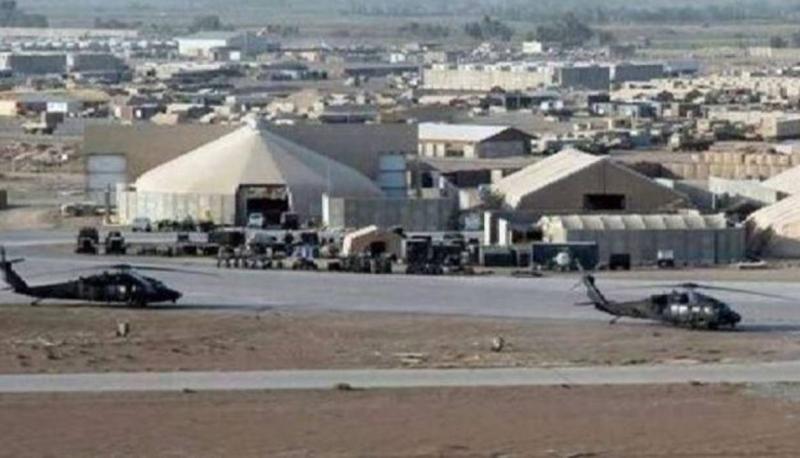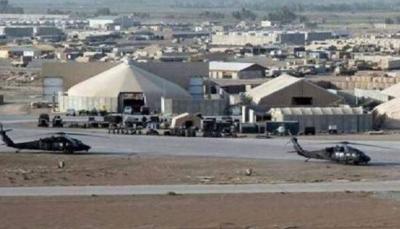A senior Iraqi official revealed that "intensive" communications began on Tuesday to halt the escalating tensions following the shelling of the Kharir base in Erbil (North) by armed factions and the American response of striking facilities belonging to the Popular Mobilization Forces south of Baghdad. Iraqi sources report a sense of "frustration hanging over the offices of the Iraqi government as they feel their active efforts will not achieve a solid and sustainable de-escalation."
One member of an Iraqi armed faction was killed, and 24 others were injured, including eight security and civil defense personnel, in American strikes targeting sites of Iranian-aligned armed factions in the provinces of Wasit and Babil, central and southern Iraq. Later, dozens attended the funeral of the fighter killed in this attack, raising flags of the Popular Mobilization Forces and images of Abu Mahdi al-Muhandis, the deputy head of the Popular Mobilization Forces, and Iranian General Qassem Soleimani, both of whom were killed in an American strike at Baghdad airport nearly four years ago.
The American strike was in response to an attack by the factions targeting American forces overnight from Monday to Tuesday in Syria and Iraq, resulting in injuries to three American soldiers. Field sources indicated that "an explosive drone hit a military point belonging to the American forces near Erbil International Airport," while eyewitnesses noted that "air traffic was halted for a few hours following the attack," later claimed by a group calling itself "the Islamic Resistance in Iraq." This group stated, in a statement issued on Tuesday, that it conducts attacks against Americans in the region in retaliation for "Israeli massacres in Gaza."
Yahya Rasul, the official spokesman for the Commander-in-Chief of the Armed Forces, stated that "the targeting of Erbil airport is a terrorist act," affirming that "Iraqi forces will reach those responsible." Informed sources suggest that the stronger firepower in this latest attack may have been in response to the killing of Reza Mousavi, an armaments responsibility figure in the Iranian Revolutionary Guard Corps.
U.S. National Security Council spokesperson Adrienne Watson stated in a press release that the attack on the Erbil airbase led to injuries among three American troops, one of whom is in serious condition. President Joe Biden was "immediately" briefed on the attack and ordered the Department of Defense to prepare response options against those responsible for the attack. These options were then presented during a phone call in the afternoon with Defense Secretary Austin and members of the President's national security team. During that call, the President directed strikes on three locations used by "Hezbollah Brigades" and affiliated groups, particularly focusing on drone activities, according to Watson.
The Iraqi official, who requested anonymity, believes that "the magnitude of the casualties in the latest attack prompted Washington to respond quickly and violently in Babil and Wasit." Prime Minister Mohammed Shia' al-Sudani's office issued a press statement condemning the factions' targeting of Erbil airport and the U.S. bombing of Iraqi military facilities in central Iraq, noting that "these actions hinder efforts to end the presence of international coalition forces in Iraq." Al-Sudani stated, "The terrorist organization (ISIS) no longer poses a threat to Iraqi national security, and therefore maintaining the fruits of this victory is central to our security and strategic priorities, and we will not allow any party to undermine what has been achieved and solidified through thousands of sacrifices."
Concerns about a "slide into chaos" were also expressed, as the Iraqi authorities began "intensive communications" with Iraqi politicians and diplomatic channels to ensure that "the mutual escalation can stop as quickly as possible." The official stated, "It is unclear if the Iraqi armed groups will comply with calls for de-escalation; they have previously rejected similar attempts," adding that the Americans "will not hesitate to respond to violent attacks against their citizens and interests."
According to the official, who confirmed he was aware of the calming efforts, "a sense of frustration prevails in the offices of officials in the government and the coordinating framework, as they may reach a state of chaos." The "State Forces" coalition, led by Ammar al-Hakim and former Prime Minister Haider al-Abadi, warned that the military and security escalation between America and Iraqi parties could lead to a slide into chaos and disorder.
However, the American ambassador, who did not address the position of the Prime Minister directly in her statement on Tuesday as has been customary, emphasized that "terrorist attacks must stop," stating that the American president prioritizes the protection of American individuals over anything else. The political and governmental concern regarding the escalation appears justified after Iranian-aligned factions sharply attacked the Iraqi government in response to its recent statement.
The spokesman for the Iraqi "Hezbollah Brigades," known as "Abu Ali al-Askari," stated in a post on the X platform that the government's recent statement "justifies for the Americans their actions in Iraq and the implementation of new attacks against the Popular Mobilization Forces," noting that "anyone who enters the American embassy through its back door with pseudonyms is beyond the law."




